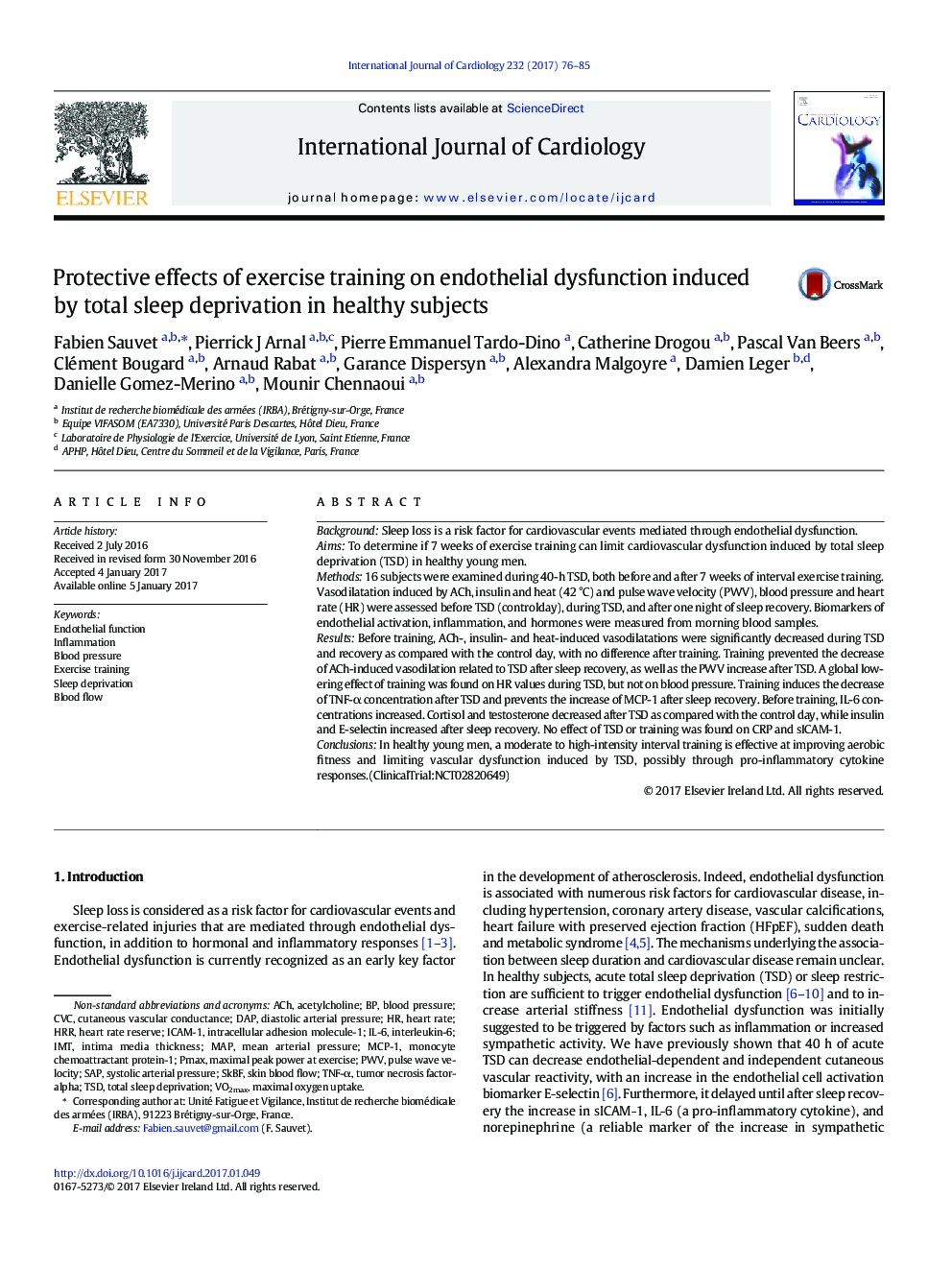| Article ID | Journal | Published Year | Pages | File Type |
|---|---|---|---|---|
| 5605184 | International Journal of Cardiology | 2017 | 10 Pages |
â¢Sleep deprivation triggers endothelial dysfunction and inflammatory response.â¢Exercise training prevents endothelial dysfunction induced by sleep deprivation.â¢Exercise training could be considered as a relevant countermeasure to sleep deprivation.â¢Protective effect of exercise training is linked to inflammatory responses.
BackgroundSleep loss is a risk factor for cardiovascular events mediated through endothelial dysfunction.AimsTo determine if 7 weeks of exercise training can limit cardiovascular dysfunction induced by total sleep deprivation (TSD) in healthy young men.Methods16 subjects were examined during 40-h TSD, both before and after 7 weeks of interval exercise training. Vasodilatation induced by ACh, insulin and heat (42 °C) and pulse wave velocity (PWV), blood pressure and heart rate (HR) were assessed before TSD (controlday), during TSD, and after one night of sleep recovery. Biomarkers of endothelial activation, inflammation, and hormones were measured from morning blood samples.ResultsBefore training, ACh-, insulin- and heat-induced vasodilatations were significantly decreased during TSD and recovery as compared with the control day, with no difference after training. Training prevented the decrease of ACh-induced vasodilation related to TSD after sleep recovery, as well as the PWV increase after TSD. A global lowering effect of training was found on HR values during TSD, but not on blood pressure. Training induces the decrease of TNF-α concentration after TSD and prevents the increase of MCP-1 after sleep recovery. Before training, IL-6 concentrations increased. Cortisol and testosterone decreased after TSD as compared with the control day, while insulin and E-selectin increased after sleep recovery. No effect of TSD or training was found on CRP and sICAM-1.ConclusionsIn healthy young men, a moderate to high-intensity interval training is effective at improving aerobic fitness and limiting vascular dysfunction induced by TSD, possibly through pro-inflammatory cytokine responses.(ClinicalTrial:NCT02820649)
Graphical abstractDownload high-res image (78KB)Download full-size image
